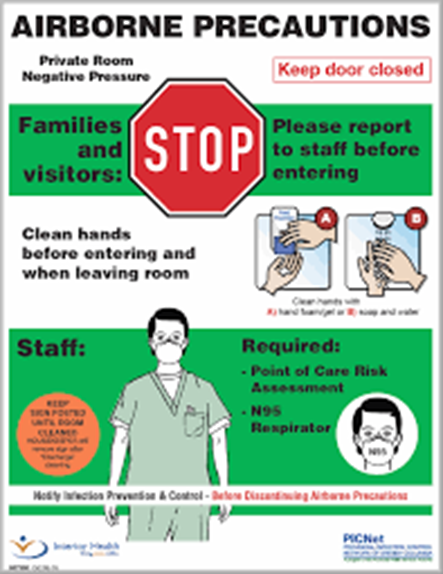A nurse is reviewing the medical record of a 15-month-old child who is scheduled to receive the measles, mumps, and rubella (MMR) vaccine.
Which of the following findings should the nurse identify as a contraindication for receiving this vaccine?
Allergy to neomycin.
Family history of seizures.
Upper respiratory infection 2 days ago.
Temperature of 37.2°C (99°F).
The Correct Answer is A
An allergy to neomycin is a contraindication for receiving the MMR vaccine.
Choice B is wrong because a family history of seizures is not a contraindication for receiving the MMR vaccine.
Choice C is wrong because an upper respiratory infection 2 days ago is not a contraindication for receiving the MMR vaccine.
Choice D is wrong because a temperature of 37.2°C (99°F) is not a contraindication for receiving the MMR vaccine.
Nursing Test Bank
Naxlex Comprehensive Predictor Exams
Related Questions
Correct Answer is A
Explanation
Varicella (chickenpox) is highly contagious and can be spread through the air by coughing or sneezing.

Airborne precautions help prevent the spread of the disease to others.
Choice B is wrong because Koplik spots are a symptom of measles, not varicella.
Choice C is wrong because providing a warm blanket is not a specific intervention for a child with varicella.
Choice D is wrong because aspirin should not be given to children with varicella due to the risk of Reye’s syndrome.
Correct Answer is D
Explanation
An increased respiratory rate is a sign of severe dehydration in infants.
Dehydration occurs when an infant loses so much body fluid that they are not able to maintain ordinary function.
Choice A is wrong because hypertension is not a sign of severe dehydration in infants.
Choice B is wrong because increased urine output is not a sign of severe dehydration in infants.
In fact, decreased urine output is a sign of dehydration 2.
Choice C is wrong because a capillary refill of 2 seconds is normal and not a sign of severe dehydration in infants.
Whether you are a student looking to ace your exams or a practicing nurse seeking to enhance your expertise , our nursing education contents will empower you with the confidence and competence to make a difference in the lives of patients and become a respected leader in the healthcare field.
Visit Naxlex, invest in your future and unlock endless possibilities with our unparalleled nursing education contents today
Report Wrong Answer on the Current Question
Do you disagree with the answer? If yes, what is your expected answer? Explain.
Kindly be descriptive with the issue you are facing.
